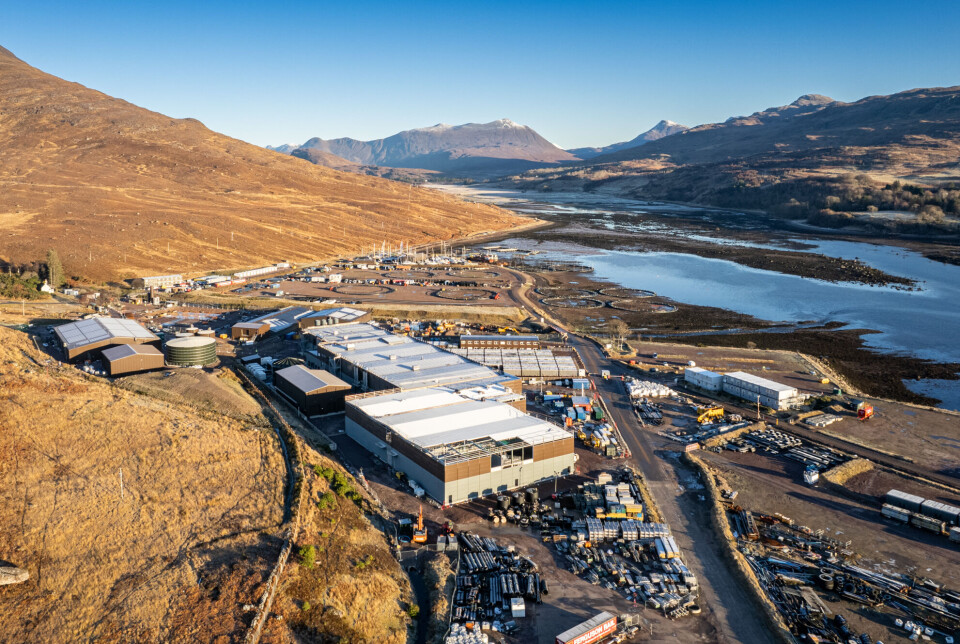
Bakkafrost's Faroes freshwater director takes control of Scottish hatcheries
Experienced staff from archipelago have also moved to salmon farmer's flagship Applecross site after £6m mortality incident
Faroes and Scotland salmon farmer Bakkafrost has placed its Scottish freshwater operations under Faroese control and transferred some Faroese staff to Bakkafrost Scotland’s flagship Applecross hatchery and post-smolt facility.
“In Scotland, we are not pleased with the performance in the freshwater operation, where we unfortunately faced significant mortalities due to diseases,” said Bakkafrost Group chief executive Regin Jacobsen in comments about the group’s results for the second quarter of 2025.
“To address this, we are integrating the Scottish freshwater operations under the Faroese organisation, led by the Group Freshwater Director, and have strengthened the site management at Applecross with experienced staff from the Faroe Islands.”
A delicate process
Bakkafrost said that exceptional mortality caused by a disease outbreak in one of the modules at Applecross had cost it DKK 52 million (approximately £6m), as first reported in a profit warning on July 15.
It said in a press release that ramp-up of the production of large high-quality smolt from Applecross “is not a straight-line development, but a delicate and gradual process involving some level of risk which reduces as the operation is fine-tuned, and all procedures executed at least once”.
It added that while some of the production modules at Applecross display good performance with strong growth and low mortality, disease-driven exceptional mortality was experienced in one of the modules.
“Since the previous quarter, the new Applecross 6 module has been commissioned and started operation. The Applecross hatchery now has a production capacity of around 3,500 tonnes of smolt annually, planned to be transferred at weights above 200g.
“In Q2 2025, the average weight of transferred smolt from Applecross in Scotland was 232g, which is 80% higher than in Q1 2024. The average smolt weight for all Bakkafrost’s smolt release in Scotland in the quarter was 170g, which is 79% higher than in Q2 2024.”
A unified approach
The company said that until now, the Scottish freshwater department has worked closely with its Faroese peer to ensure effective knowledge transfer and alignment on best practices.
“To further consolidate this, the two freshwater departments have now been merged under the leadership of the Group Freshwater Director (Rúni Olsen), based in the Faroe Islands. This step ensures a unified approach across geographies and leverages the Group’s extensive experience in freshwater management,” wrote Bakkafrost. “At the same time, the local team in Scotland continues to play a central role in daily operations, with site management at Applecross further reinforced through the relocation of experienced colleagues from the Faroes to support and complement the Scottish workforce.”
Bigger harvest projection
Bakkafrost said some Scottish marine farming sites faced disease issues in Q2, resulting in higher mortality costs and write-downs until mid-July. But strong biological performance at other sites led to good harvest weights and growth, and as a result the company has raised Scotland’s 2025 harvest target from 20,000 to 22,000 gutted weight tonnes.
“The fish affected by disease in the quarter were ‘legacy-fish’, representing the reduced smolt quality from the past,” said Bakkafrost. “During 2025 and into 2026, the biomass at sea will gradually change character, transitioning to be based on large and high-quality smolt. This strategic shift is expected to enhance overall fish health and growth rates, leading to a more robust and sustainable aquaculture environment.”























































